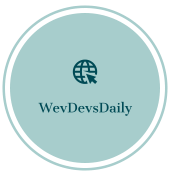What are Laravel Events and Listeners?
Let’s talk about Laravel events and listeners in a simple and easy-to-understand way. Events and listeners in Laravel are like a way to handle things that happen in your application. They help you keep your code organized and clean.
What are Laravel Events and Listeners?
– Events: Think of an event as something that happens in your app, like a user logging in, a new order being placed, or a post being created.
– Listeners: Listeners are actions that you want to perform when an event happens. For example, sending a welcome email when a user logs in, notifying the admin when a new order is placed, or updating the search index when a post is created.
Why Use Events and Listeners?
Using events and listeners helps you keep your code clean and separated. Instead of putting all the logic in one place, you can handle different tasks in different places. This makes your code easier to read and maintain.
Example: Sending a Welcome Email When a User Registers
Let’s create a simple example where we send a welcome email to a user when they register.
Step 1: Create the Event
First, create an event that will be fired when a user registers.
php artisan make:event UserRegistered
This will create a new event file `UserRegistered.php` in the `app/Events` directory.
// app/Events/UserRegistered.php
namespace App\Events;
use App\Models\User;
use Illuminate\Queue\SerializesModels;
use Illuminate\Foundation\Events\Dispatchable;
class UserRegistered
{
use Dispatchable, SerializesModels;
public $user;
public function __construct(User $user)
{
$this->user = $user;
}
}
Step 2: Create the Listener
Next, create a listener that will send the welcome email.
php artisan make:listener SendWelcomeEmail
This will create a new listener file `SendWelcomeEmail.php` in the `app/Listeners` directory.
// app/Listeners/SendWelcomeEmail.php
namespace App\Listeners;
use App\Events\UserRegistered;
use Illuminate\Contracts\Queue\ShouldQueue;
use Illuminate\Queue\InteractsWithQueue;
use Illuminate\Support\Facades\Mail;
use App\Mail\WelcomeMail;
class SendWelcomeEmail
{
public function __construct()
{
//
}
public function handle(UserRegistered $event)
{
Mail::to($event->user->email)->send(new WelcomeMail($event->user));
}
}
Step 3: Register the Event and Listener
You need to tell Laravel about your event and listener. Open the `EventServiceProvider` file and register them.
// app/Providers/EventServiceProvider.php
namespace App\Providers;
use Illuminate\Foundation\Support\Providers\EventServiceProvider as ServiceProvider;
use App\Events\UserRegistered;
use App\Listeners\SendWelcomeEmail;
class EventServiceProvider extends ServiceProvider
{
protected $listen = [
UserRegistered::class => [
SendWelcomeEmail::class,
],
];
public function boot()
{
parent::boot();
}
}
Step 4: Fire the Event
Finally, fire the event when a user registers. Open the `RegisterController` and fire the `UserRegistered` event.
// app/Http/Controllers/Auth/RegisterController.php
namespace App\Http\Controllers\Auth;
use App\Http\Controllers\Controller;
use App\Providers\RouteServiceProvider;
use Illuminate\Foundation\Auth\RegistersUsers;
use App\Models\User;
use Illuminate\Support\Facades\Hash;
use Illuminate\Support\Facades\Validator;
use App\Events\UserRegistered;
class RegisterController extends Controller
{
use RegistersUsers;
protected $redirectTo = RouteServiceProvider::HOME;
protected function validator(array $data)
{
return Validator::make($data, [
'name' => ['required', 'string', 'max:255'],
'email' => ['required', 'string', 'email', 'max:255', 'unique:users'],
'password' => ['required', 'string', 'min:8', 'confirmed'],
]);
}
protected function create(array $data)
{
$user = User::create([
'name' => $data['name'],
'email' => $data['email'],
'password' => Hash::make($data['password']),
]);
event(new UserRegistered($user));
return $user;
}
}
In summary:
– **Events** are things that happen in your app.
– **Listeners** are actions that should happen when an event occurs.
By using events and listeners, you can keep your code clean and organized. This makes it easier to manage and extend your application in the future.
I hope this explanation helps you understand Laravel events and listeners better.
